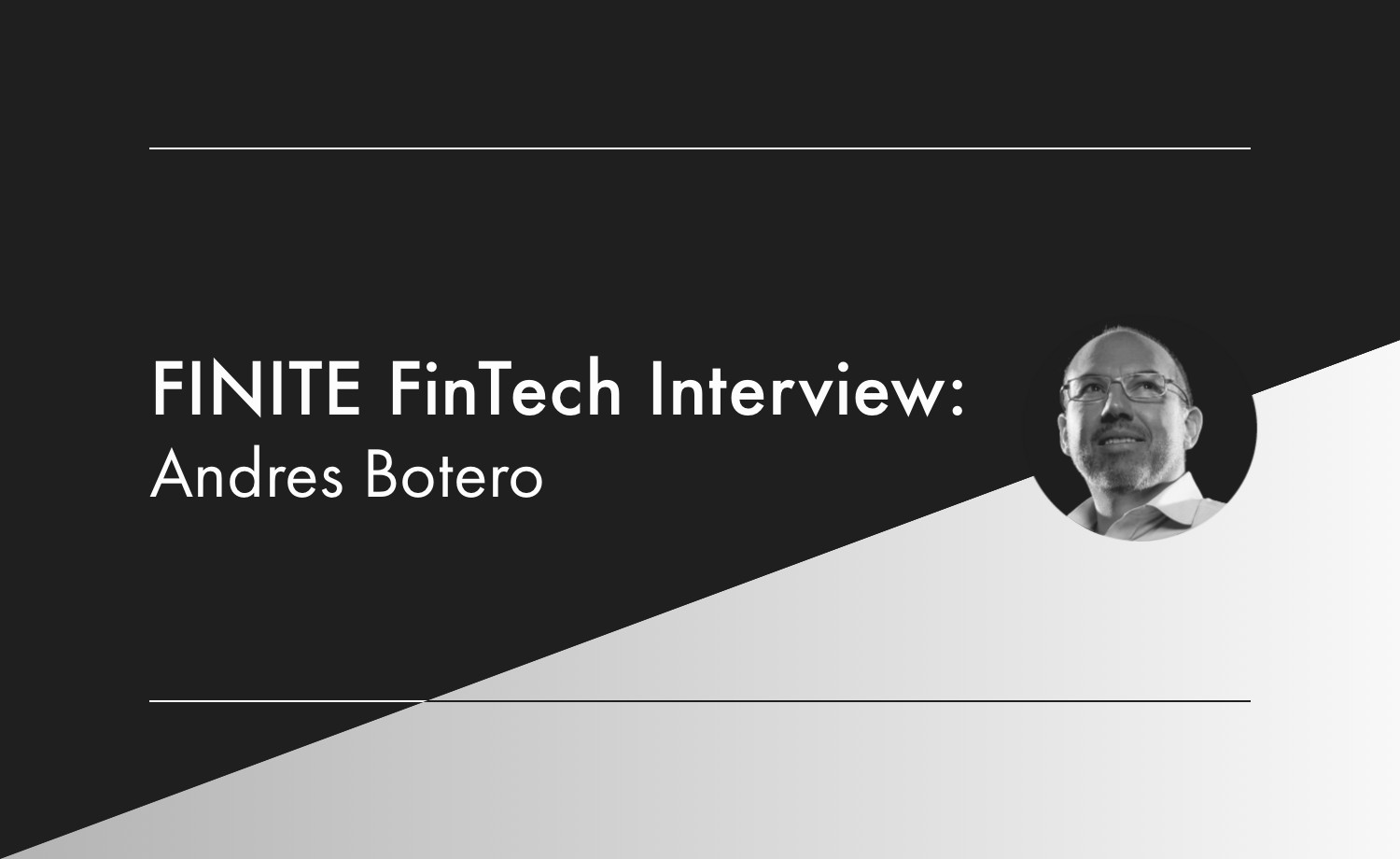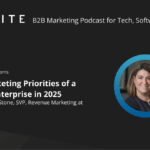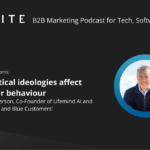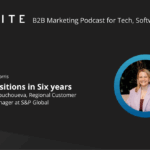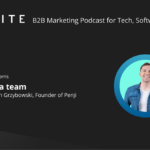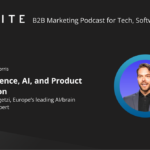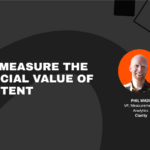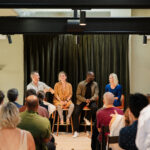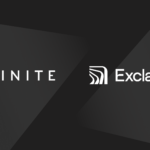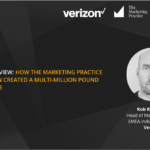A CMO is the anchor to a marketing team. They drive ideas, campaigns, and other marketeers forward, with a top-level view for business growth.
In this edition of the FINITE FinTech Interview Series, we had a chat with Andres Botero, CMO at BlackLine. BlackLine is a provider of cloud-based solutions that transform finance and accounting for large and midsize organisations.
Whether you are a CMO, want to be a CMO or work with one, this interview will help you to understand the role in great depth.
This interview covers:
- What a good CMO looks like
- Caters to differing business needs
- Adapts quickly as the company develops and changes
- Can translate a message to different personas
- Practical steps to take when coming into a new company as CMO
- Research the company, audience, and employees
- Do a talent assessment and talent management
- Learn the product inside out
- Understand customer motivations
- Fully understand your mission!
- Challenges of a CMO
- Competing with giant companies
- Growing the company internationally
- The responsibility of a CMO to respond to COVID
- Transitioning face-to-face events to virtual
- Supporting a remote team
- Supporting customers through offerings
FINITE: Hi Andres! Firstly, could you tell us about your role as CMO at BlackLine currently?
Andres: I run marketing and business development at BlackLine. Marketing includes everything from the brand and brand manifestations, PR communications, but also all demand generation.
We have a large business development team that engages with audiences, all the creative aspects, product marketing, messaging, positioning, and also the events. We have a very rich webinar program of about 300 webinars in a year.
So it goes from the very creative aspect to the very mathematical aspect of running demand generation and deciding where to invest money and effort.
This is a public company with about 340 million expected in revenue this year, so it’s generating demand and also engaging customers. We are a subscription model, so we want customers to renew and be happy with us and help those customers to tell their story to the world, so others can see what people are achieving with our technology.
FINITE: Sounds interesting! Given your vast experience in various CMO positions, what does a good CMO look like to you?
Andres: That’s a great question! CMO personality skills have to match what the company needs depending on company stage.
So a company like ours is fast growing. You probably need a CMO that can move quickly, and can leverage the assets that we have. We have fanatical customers, they love us. So that’s an asset. You need a CMO that can harvest that and allow those stories to be told. And at the same time, project those stories to the people that don’t know about us yet, or don’t know enough about us.
So for BlackLine, you need a CMO that is very agile, can execute quickly and transition from a smaller company to the big company that will be coming. So you probably need someone that has seen everything, small, big and between. And also someone that understands how to develop an understanding of the persona.
We’re trying to sell to accountants. We sell to controllers and I’ve sold in my past to sales and marketing. Those are very different things. Selling to a marketing executive is a very different thing from selling to an accountant. Different personalities, different tones, they have different attitudes towards technology and new processes.
So you need someone that understands that difference and can translate that to messaging, positioning, and the means of communication and the demand generation efforts.
FINITE: When coming into a new company as a CMO, what are some key practical steps you take?
Andres: I usually come to a company and invest at least a month or more in understanding the company, the people, the team and the customers. It’s a lot of interviews and meetings just listening and soaking in. What talent do we have? Who are these people? What do they know? What can they do that they are not doing right now? Are they happy or unhappy?
So the whole talent management is one aspect, and understanding where you could add some talent if it’s missing, but also in many cases there’s talent that has not been fully utilised. People that have lots of potential that could do a lot more, that all they need is to be moved to a slightly different position, giving them additional responsibility.
So that’s one area, talent management and talent assessment. Another one is really understanding the solutions or the products and what they do. I personally cannot sell or market what I don’t understand. I want to be able to do a demonstration of the product, that is as good as what a sales engineer could do, for example. That way I really understand the problem.
And then talking to customers, why they bought it, how they use the product, what is the value of the product, or the solution it’s giving them. I’ve found many times a company thinks that one thing is what we do for customers. And then when you talk to customers, they actually say something else. They value the solutions because of other reasons.
So you’ve really got to understand the customer motivations and use cases. And so that takes the first month or couple of months. In the meantime, you’ve got to keep the lights on and keep the operation going and formulate a plan.
So I think to your question, when you’re new, I think you’ve got to uncover what you do, who you have in the team, what we know, what we don’t know, what do we need, and align with your stakeholders, especially the CEO and your peers on the mission.
A new CMO’s mission might be to turn around a company, or it might be to keep it going. Or maybe it’s to radically change a few aspects of it. So understanding the mission helps to inform what you do. Don’t jump to do anything until you fully understand your mission.
FINITE: What’s the biggest challenge you have come across so far as a CMO and how did you overcome it?
Andres: There are many times I’ve found lots of challenges. As a CMO one challenge is competing with a monster company that is a hundred times bigger than yours. So you’re small, you have small budgets, a small team, so how do you get your voice heard out there? At the same time it was incredibly interesting and energising to engineer ways to get the voice out there, and rise above monster competitors.
I think growing from a local, US-based operation into a global one is very challenging. Let’s say you have an operation in the US and you want to go everywhere. You want to be in Japan, you want to be in different parts of Europe, you want to be in Australia, eventually America, et cetera.
The transition from one geography to global is continuous. And you can only have headcount and programs and money and attention in discrete increments. So deciding what these discrete increments are and how much is done centrally in the headquarters and how much is done locally. It’s an art and a lot of attention has to be given to that. So that’s another big challenge.
FINITE: How has COVID impacted your role as CMO at BlackLine?
Andres: Well, COVID has made the job super interesting in the sense that CMOs these days are really central to how a company responds to these kinds of situations.
Like when COVID hit, we all went virtual. I was organising an event in London, it was the beginning of March, and we were expecting a couple of thousand people, it was a large event, investments were done, we were ready to go. And all of a sudden we cannot have this conference.
I talked to my team and they said no, we’re not going to cancel, we’ve got to do this virtually. And we had nine days to organise a virtual conference. People are invited, they have registered, they put their time aside to accompany us. We’re not going to let them down. Somehow we’re going to make this happen.
And at the same time, my entire team went virtual meaning they no longer had an office to go to now. All of us had to work from home and it was the first time that the team was completely distributed. Our customers accounting teams throughout the globe, were going through the same transition. They were used to working in an office, in the headquarters. So we also had to help them.
I also helped the whole company respond, by putting together offerings and to support our customers going through this transition. We made all of our training free for accountants, so they could learn anything they didn’t know. Before they could turn around and ask someone, but now working from home there is a whole library of training.
I think the team has been working really well together while working remotely. We’ve had many virtual events, we’ve learned a ton.
You asked me at the beginning, are you going to do this virtual conference again when COVID goes away? COVID has taught us that there are opportunities for these types of conferences, even in a post COVID environment. And that there’s an audience that wants to engage that way. So I think any change makes the role even more interesting and more challenging.
FINITE: Thanks for sharing your knowledge with us Andres! You’ve made some great points and we’ve gained very valuable insight.
To read the last edition of the FINITE FinTech Interview Series and to learn how to implement MarTech, click here!
